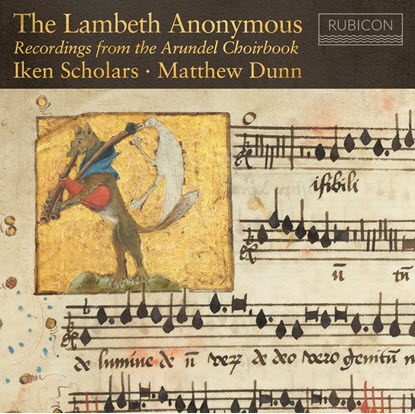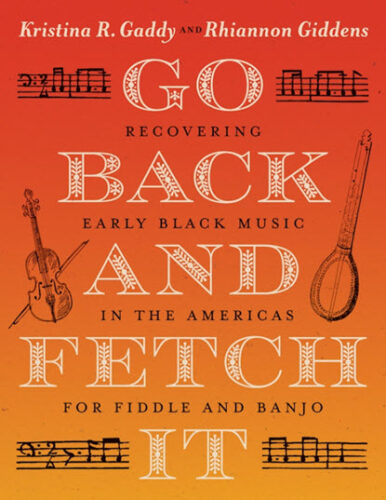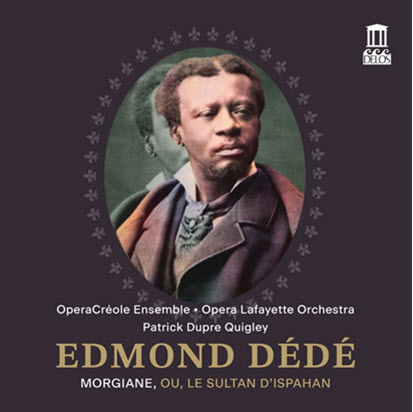by Aaron Keebaugh
Published January 16, 2023
Two short films performed by I Fagiolini: “Goosed,” screenplay by Timothy Knapman, directed by Gregory Browning, with music by Giovanni Croce; and “The Stag Hunt,” written and directed by John La Bouchardière, with music by Clément Janequin.
The game is simple. Each player lays their bet in the middle of the board, rolls the dice, moves their pieces, and hopes to reap the rewards.
But the British ensemble I Fagiolini views Giovanni Croce’s “The Goose Game” (1595) as more than a description of a popular 16th-century pastime. “Goosed,” their latest short film released on YouTube, recasts the short Renaissance masque as a titillating, quasi-operatic whodunit complete with delightfully inept detectives—part bumbling Inspector Clouseau, part bowler-wearing Thomson-and-Thompson twins (as from Tintin comic books).
Ensembles have long filmed their on-stage productions, with close-ups and multiple camera angles, as if from some idealized best-seat-in-the-house perspective. The Met Opera’s big-budget Live in HD shows are a prominent example. Another is Les Délices’ delightful “The White Cat,” available on pay-per-view Marquee.tv—a compelling early-music example of in-theater style.
But these two I Fagioli films, entirely inventive, are something apart.
With bold, precise singing and humorous acting, relayed through a cinematic approach, “Goosed” is a successful merging of old music, strong production techniques, and comic drama. It’s a follow up to I Fagiolini’s award-winning “The Stag Hunt.”
Crafting a storyline from the text, “Goosed” transports the 16th-century parlor game to a historic English manor house, where a count, an adventuress, a playboy, the butler, and the local constables play for keeps.
There’s cleverness and humor from the outset. Meanwhile, one of the detectives knocks over knick-knacks and vases. The black and white film brings the air of a murder mystery. But we witness the culprit out of sheer surprise. By the end, a thief has stolen all the prizes…plus the suspenders from the constable’s pants!
Bright and bold vocals convey each line amidst the chatter of the ensemble. Counter-tenor Robert Hollingsworth brings a Murder By Death charm to the constable. Soprano Rebecca Lea makes a fittingly coy and seductive thief. As the Count, in whose house this mystery plays out, baritone Eamonn Dougan maintains an air of quiet dignity.
Given these delights, “Goosed” offers as many music and visual rewards as “The Stag Hunt,” which I Fagiolini released this past year. With similar levity, the ensemble makes Clément Janequin’s familiar “La Chasse” (1537) into a scene straight out of The Way We Live Now, albeit with an environmentalist twist.
A royal family is out hunting for a stag when the king discovers droppings and proudly reveals them to the party. From there, the chase ensues as a video game, with the stag evading capture like Pac-Man. Hounds eventually trap the stag, and the king takes his right to slay and claim his prize. The family retires to refreshments as the camera pans out to reveal a desolate landscape. No catastrophe, this film suggests, gets in the way of aristocratic pleasures.
While the action is minimal—the party merely sits on a couch and watches the game unfold—dark colors and clarion singing reveal the narrative intricacies. Charles Gibbs portrays a stubborn but affable king focused solely on the hunt and his conquest, as his family exchanges Janequin’s lines with the vigor of a friendly conversation. Clare Wilkinson, as the princess, Nicholas Hurndall Smith, as the duke, and Anna Crookes, as the queen, bring a harmonious blend to the chatter of the chanson’s refreshment scene.
As music, such works may invoke the theater of the mind, but these playful productions explore elements well beyond the notes on the page.
Aaron Keebaugh has written for The Musical Times, Corymbus, The Classical Review, and The Arts Fuse, for which he serves as regular classical critic. A musicologist, he teaches at North Shore Community College in Danvers, Mass.




